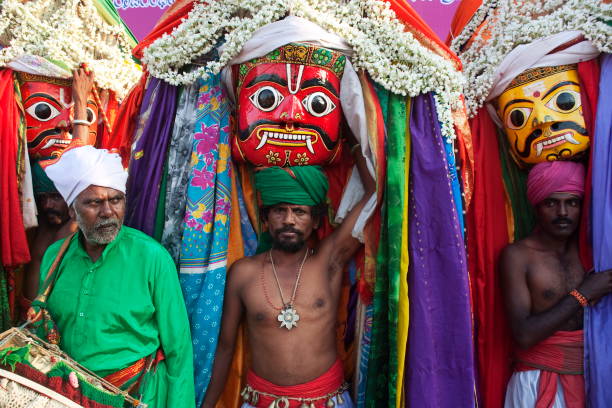Dollu Kunitha
Dollu Kunita: A Symphony of Rhythm, Energy, and Tradition

Dollu Kunita is a vibrant and energetic folk dance native to Karnataka, a state in southern India. It is a cultural treasure of the region, renowned for its powerful drumming, synchronized movements, and exuberant energy. This traditional art form embodies the spirit of rural Karnataka, blending music, dance, and storytelling in a unique and captivating manner. The term Dollu Kunita derives from the Kannada words Dollu (drum) and Kunita (dance), emphasizing the central role of the drum in this dynamic performance.
Historical and Mythological Roots
The origins of Dollu Kunita are deeply rooted in Karnataka’s rural traditions and the mythology of Hinduism. It is closely associated with the worship of Lord Beereshwara or Beeradevaru, a form of Lord Shiva. According to legend, the drum used in Dollu Kunita was crafted by Shiva himself from the skin of a demon named Tripurasura after his defeat. This divine connection imbues the dance with spiritual significance, making it a central part of temple rituals and festivals in many villages.
Historically, Dollu Kunita has been performed by members of the Kuruba community, a pastoral group known for their devotion to Lord Beereshwara. Over time, the dance has transcended its origins, becoming a symbol of Karnataka’s cultural heritage and a popular attraction at cultural festivals and events across India.